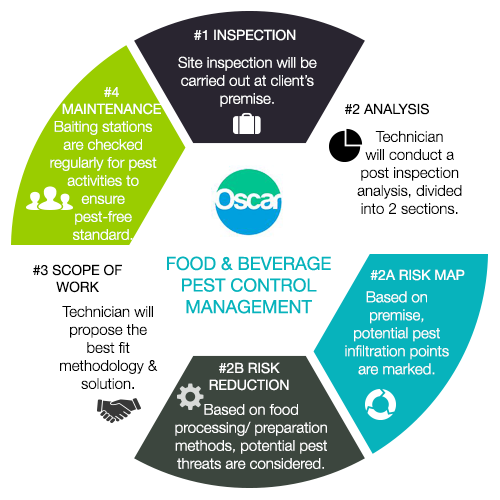The Duty Of Pest Control In Food Safety And Security And Hygiene
The Duty Of Pest Control In Food Safety And Security And Hygiene
Blog Article
Authored By-Clark Glover
Are you familiar with the hidden risks that bugs pose to the safety and security and hygiene of your food? From rodents to bugs, these unwanted visitors can infect your components, surfaces, and storage locations.
This post discovers the critical function of bug control in keeping the highest possible standards of food security and health. Discover effective approaches and avoidance measures that will certainly help you shield your service, consumers, and credibility.
go to this web-site allow parasites endanger the quality of your food.
The Influence of Parasites on Food Safety and Health
In your kitchen, pests can have a substantial impact on food safety and hygiene. These undesirable guests, such as rats, bugs, and roaches, can contaminate your food, surface areas, and tools with hazardous bacteria, viruses, and bloodsuckers. They can quickly access your cupboard, cupboards, and even your refrigerator, leaving droppings, urine, and hair.
Not just can they ruin your food by chewing via packaging, however they can additionally spread conditions like Salmonella, E.coli, and Listeria. Visualize preparing a meal for your household, uninformed that the active ingredients you're utilizing are currently contaminated.
It's important to take prompt activity to stop and control insects in your kitchen. Regular cleaning, correct food storage, and professional insect control procedures are vital to ensure food security and maintain a sanitary atmosphere in your kitchen.
Efficient Parasite Control Methods for the Food Industry
Implementing efficient pest control approaches is vital for maintaining food security and hygiene in the food sector. By implementing these approaches, you can protect against bugs from polluting the food and make certain that your items are risk-free for intake.
One effective method is to routinely check and check your center for signs of insect task. This includes monitoring for droppings, nests, or any type of damages caused by pests.
It's additionally essential to seal all access indicate avoid parasites from getting in the facility. Regular cleansing and sanitation are essential, as bugs are attracted to food residue and spills.
In addition, correct waste management is important to stop the build-up of food waste that can bring in insects.
Keeping Hygiene Standards With Insect Avoidance Steps
To keep health requirements, you have to routinely execute bug prevention actions. By taking aggressive steps to avoid pests from entering your food facility, you can make certain the safety and security and sanitation of your facilities. Below are some efficient pest prevention procedures to take into consideration:
- Seal all splits and crevices: Insects can get in through also the tiniest openings. Regularly evaluate and secure any kind of voids in doors, home windows, walls, and floors to keep parasites out.
- Correct waste monitoring: Get rid of food waste immediately and securely in sealed containers. This will certainly lessen the tourist attraction of pests and avoid problems.
- Regular cleansing and disinfecting: Keeping tidiness in your facility is essential. Frequently clean and sterilize all locations, paying special interest to locations where parasites might hide or reproduce.
- Execute a tracking system: Frequently inspect your premises for indicators of bug task. Set up DIY rodent control methods monitoring tools, such as traps or sensing units, to recognize and address any potential issues at an early stage.
Conclusion
So keep in mind, when it involves food security and hygiene, bug control plays a vital duty.
By executing efficient insect control approaches and safety nets, we can make certain the highest possible requirements of tidiness and safety in the food market.
Do not allow bugs endanger the quality of our food; let's stand together and shield our wellness and well-being.
